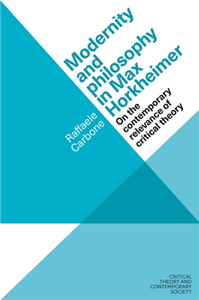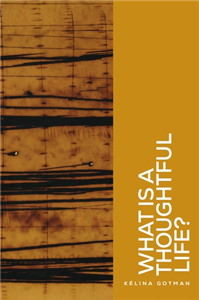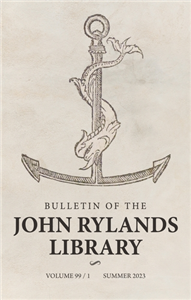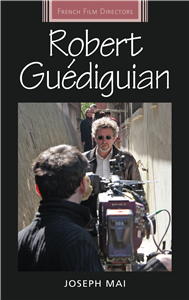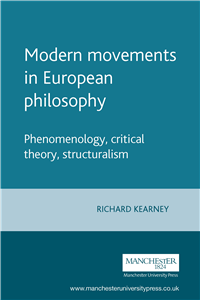Your Search Results
-
Phileas Fogg Agency
Agency representing picture books projects, Foreign rights for publishers of picture books, representation of portfolios, contract consultancies.
View Rights Portal
-
Promoted ContentHumanities & Social SciencesJuly 2026
Modernity and philosophy in Max Horkheimer
On the contemporary relevance of critical theory
by Raffaele Carbone
This book shows that Max Horkheimer's program of critical theory and his research throughout his career as a university professor and thinker are rooted in the cogency of philosophical questions and an in-depth knowledge of the historical development of philosophical problems in their close correlation with the socio-economic framework which shaped the 'bourgeois society' and the Modern Era. Indeed, his analyses of modern philosophers allows us to understand how the bourgeoisie seeks legitimisation and consolidation of its position, partly through the voices of its thinkers. In this way, in his investigation of early modern philosophy problems, and through constant dialogue with his colleagues Adorno, Marcuse, Pollock and Fromm, Horkheimer expresses a profound awareness of the critical force inherent in thought which, admittedly, is ever vulnerable to crisis and weakening, but which can always be reactivated.
-
Promoted ContentMay 2023
How Philosophers Fail Themselves
The somewhat different historyof philosophy
by Otto A. Böhmer
— Philosophy for beginners — For philosophy enthusiasts — A pleasant read This truly brilliant book tells of the sometimes sublime, sometimes exhilarating efforts of philosophers to maintain their attitude in everyday life without forgetting the meaning of their own words – and how they ultimately failed to do so. The minor, sometimes bizarre events in the lives of the great philosophers fit so aptly in the picture of the respective philosophy that one has to assume they could have been conceived to keep the associated intellectual giant in a strange and memorable mood. A book of cheerful science, full of wit, narrative and linguistic eloquence.
-
 Trusted Partner
Literature & Literary StudiesOctober 2023
Trusted Partner
Literature & Literary StudiesOctober 2023Reading David Foster Wallace between philosophy and literature
by Allard den Dulk, Pia Masiero, Adriano Ardovino
-
 Trusted Partner
December 2021
Trusted Partner
December 2021Critical Philosophy of Race
Ein Reader
by Kristina Lepold, Marina Martinez Mateo
Welche Art von Realität hat race? Welche Rolle spielen Wahrnehmungs- und Wissensformen bei ihrer Konstruktion? Was ist und wie funktioniert Rassismus? Das sind die zentralen Fragen, denen sich seit zwei Jahrzehnten das Forschungsfeld der Critical Philosophy of Race widmet, welches insbesondere in den USA wirkmächtige akademische und außerakademische Debatten angestoßen hat. Aber auch hierzulande ist die philosophische Beschäftigung mit race und Rassismus wichtig geworden, wie aktuelle Ereignisse und Diskussionen zeigen. Der Band stellt die noch junge Disziplin vor und präsentiert – zum Teil in deutscher Erstübersetzung – die einschlägigen Texte, u. a. von Kimberlé Crenshaw, Kwame Anthony Appiah, Tommie Shelby, Linda Martín Alcoff und Sally Haslanger.
-
 Trusted Partner
2023
Trusted Partner
2023Food Composition Table for the Practice
The small Souci/Fachmann/Kraut
by Founded by S.W. Souci, W. Fachmann and H. Kraut. Revised by Dr. Petra Steinhaus. Edited by the Leibniz Institute of Food Systems Biology at the Technical University of Munich.
■ How many omega-3 fatty acids does salmon contain? ■ Which dairy product contains the most calcium? ■ How iron-rich is spinach, really? Whether calories, vitamins or amino acids – whether in field beans, bananas, eggs, chicken, parmesan cheese or onion – it is all here. The compact edition of the time-tested „large SFK [Souci/Fachmann/Kraut]“ offers tested data on over 70 ingredients in more than 360 foods, systematically structured according to food groups. This edition with thousands of values has been completely revised and updated by the Leibniz Institute of Food Systems Biology at the Technical University of Munich. Extra: 32 summary tables cover more than 300 other, less common foods and allow for targeted, clear comparisons. 16 orientation tables provide information about foods with particularly high or low amounts of ingredients. Nutritional values, energy content, main components and ingredients displayed in uniform systematics and a practical format – just look it up!
-
 Trusted Partner
The ArtsJune 2026
Trusted Partner
The ArtsJune 2026What is a thoughtful life?
by Kélina Gotman
In fresh readings of Theodor W. Adorno, Giorgio Agamben, Hannah Arendt, Judith Butler, Barbara Cassin, Michel Foucault, Werner Hamacher, Martin Heidegger, and many more, Gotman rearticulates the foundations of broadly western philosophical thinking to carve out a shadowy space of recalcitrant thought 'in dark times'. At once indebted to the legacy of critique and enmeshed in affective and performative approaches to language, anti-theatricality, critical race theory and gender studies, she weaves a poetic mesh of intimate fragments, reflections on what it means to think and to write, as she puts it, after spectacle. Almost but not quite a straight work of philosophy, distinctly literary and performative in its anti-genre, this book twists and turns, swerves and cuts, to show the work of thinking as an intimate act - a theatre of angles and openings, adjacencies and reverberations.
-
 Trusted Partner
Humanities & Social SciencesJuly 2023
Trusted Partner
Humanities & Social SciencesJuly 2023Bulletin of the John Rylands Library 99/1
The Aldine Edition of the Ancient Greek Epistolographers: Roots and Legacy
by Julene Abad Del Vecchio
This special issue of the Bulletin of the John Rylands Library is devoted to the Aldine edition of the Ancient Greek epistolographers. Published in Venice in 1499 by Aldus Manutius, the Aldine edition was the first printed edition of most of the thirty-six Greek letter collections that it contains. As such, it embodies the intersection between the medieval epistolary anthologies that predated it and the printed editions of Greek epistolographic collections that followed, which were primarily based on its text. In recent decades, the Aldien edition has been the subject of important works, which have sought to analyse its contents and sources. This issue explores the Aldine edition from three perspectives: its relationship to the epistolary collections found in medieval manuscripts, its relationship to the printed editions that followed it and its legacy and value for the modern scholar studying Ancient Greek epistolography.
-
 Trusted Partner
Humanities & Social Sciences
Trusted Partner
Humanities & Social SciencesHOMECOMING
by Wolfgang Büscher
In the middle of the woods, in the middle of Germany: Wolfgang Büscher‘s fascinating journey into its very core. Night after night, a boy stands at the window of his parents’ house and watches the sun as it disappears from view behind the rolling hills in the west. He roams through the woods with his friends, building wooden shacks which the foresters destroy. It’s the early sixties. Decades later, Wolfgang Büscher makes his childhood dream come true. He moves to the woods and experiences spring, summer and autumn there. An aristocratic family on the border of Hessen and Westphalia where Büscher grew up allows him to stay in a hunting lodge in the middle of the woods, in the middle of Germany. This is where he puts up his camp bed. He has no electricity or running water. He prepares himself for quiet times alone, chopping wood and making fires, the odd hunting expedition, hiking, a marksmen’s festival, extreme loneliness and a nighttime blackness never seen in the city. The year takes an unexpectedly dramatic turn as storms, heat and plagues of beetles kill half of the woods. And something else happens which turns everything on its head: Büscher’s mother dies that summer, meaning the house he grew up in is left empty, but full of memories. This is a homecoming more existential than he could have imagined. A book far removed from the deafening din of today‘s world. An exploration of a nation, floods of memories and a “sentimental education” all rolled into one - literary, perceptive and overwhelming.
-
 Trusted Partner
Teaching, Language & ReferenceFebruary 2020
Trusted Partner
Teaching, Language & ReferenceFebruary 2020A writer's guide to Ancient Rome
by Carey Fleiner, Jerome de Groot
-
 Trusted Partner
The ArtsAugust 2022
Trusted Partner
The ArtsAugust 2022Robert Guédiguian
by Joseph Mai
Intervening at the crossroads of philosophy, politics, and cinema, this book argues that the career of Robert Guédiguian is the result of one of the most original and coherent projects in contemporary French cinema: to make a committed, historically-conscious cinema, in a local space, over a long period of time, but most especially with friends. The account starts with in-depth consideration of friendship and its relation to philosophy, politics, time, and space. The book chronologically traces this project as it begins in Guédiguian's hometown, the Communist-leaning Marseille. It further unfolds through the political transformations of the 1980s Left and the local activism and utopias of the 1990s, and spreads into Guédiguian's varied explorations of genre and register. Close analysis is accompanied with historical and social contextualization, but also with a consistent return to the underlying, radical and philosophically rich project.
-
 Trusted Partner
March 2007
Trusted Partner
March 2007Political Philosophy / Filosofía política
New Proposals for New Questions / Nuevas propuestas para nuevas cuestiones. Proceedings of the 22nd World Congress of the International Association for Philosophy of Law and Social Philosophy in Granada 2005. Vol. 2
by Herausgegeben von Carrecedo, José Rubio
-
 Trusted Partner
Humanities & Social SciencesApril 2025
Trusted Partner
Humanities & Social SciencesApril 2025The Derby philosophers
Science and culture in British urban society, 1700–1850
by Paul A. Elliott
The Derby Philosophers focuses upon the activities of a group of Midland intellectuals that included the evolutionist and physician Erasmus Darwin, Rev. Thomas Gisborne the evangelical philosopher and poet, Robert Bage the novelist, Charles Sylvester the chemist and engineer, William George and his son Herbert Spencer, the internationally renowned evolutionist philosopher who coined the phrase 'survival of the fittest', and members of the Wedgwood and Strutt families. The book explores how, inspired by science and through educational activities, publications and institutions including the famous Derbyshire General Infirmary (1810) and Derby Arboretum (1840), the Derby philosophers strove to promote social, political and urban improvements with national and international consequences. Much more than a parochial history of one intellectual group or town, this book examines science, politics and culture during one of the most turbulent periods of British history.
-
 Trusted Partner
April 2012
Trusted Partner
April 2012Medical Imaging and Philosophy
Challenges, reflections and actions
by Herausgegeben von Fangerau, Heiner; Herausgegeben von Chhem, Rethy K; Herausgegeben von Müller, Irmgard; Herausgegeben von Wang, Shih-chang
-
 Trusted Partner
May 2012
Trusted Partner
May 2012On the Philosophy of Precedent
Proceedings of the 24th World Congress of the International Association for Philosophy of Law and Social Philosophy, Beijing, 2009. Vol. 3
by Herausgegeben von Bustamante, Thomas; Herausgegeben von Bernal Pulido, Carlos
-
 Trusted Partner
Humanities & Social SciencesNovember 1994
Trusted Partner
Humanities & Social SciencesNovember 1994Modern movements in European philosophy
Phenomenology, critical theory, structuralism
by Richard Kearney
In this now classic textbook, Richard Kearney surveys the work of nineteen of this century's most influential European thinkers, and acts as an introduction to three major movements: phenomenology, critical theory and structuralism. This edition includes a chapter devoted to Julia Kristeva, whose work in the fields of semiotics and psychoanalytic theory has made a significant contribution to recent continental thought. ;
-
 Trusted Partner
Trusted Partner
-
 Trusted Partner
Humanities & Social SciencesJuly 2018
Trusted Partner
Humanities & Social SciencesJuly 2018The Political Philosophy of Jean-Jacques Rousseau
by Matt Qvortrup
-
 Trusted Partner
April 2021
Trusted Partner
April 2021On the Purposes of Life and Whether They Exist
A philosophical fitting
by Axel Braig
The musician, doctor and philosopher Axel Braig considers philosophy a little like the weather: he looks for the right clothes for every situation. Braig is primarily concerned with practical, effective things from the two-and-a-half millennia fund of (Western) thinking, such as helpful approaches in existential crises. In this book, he introduces us to philosophical thinkers from Plato to Montaigne to Levinas and Feyerabend. Braig not only shares his own philosophical biography, but above all encourages us to philosophise ourselves.
-
 Trusted Partner
January 1989
Trusted Partner
January 1989Liberalism and Recent Legal and Social Philosophy
Association for Legal and Social Philosophy. 15th Annual Conference at New College, Oxford, 7th–9th April 1988
by Herausgegeben von Bellamy, Richard
-
 Trusted Partner
Humanities & Social SciencesMarch 2026
Trusted Partner
Humanities & Social SciencesMarch 2026Artificial Intelligence and international security
Redefining arms races and contemporary warfare
by Arshin Adib-Moghaddam, Alena Vieira, Mohammad Eslami
As artificial intelligence continues to transform modern warfare, the rapid development of AI-driven weaponry presents profound ethical, legal, and security challenges. Artificial Intelligence and International Security: Redefining Arms Races and Contemporary Warfare offers a critical examination of this emerging arms race, exploring issues of arms control, international law, diplomacy, and long-term security. Bringing together expert perspectives, this volume assesses the risks and implications of autonomous weapon systems while proposing solutions to ensure ethical AI deployment. Through a comprehensive analysis of this urgent issue, it seeks to contribute to global debates and inform policies that foster peace, stability, and the responsible use of AI in warfare.




